This page provides links to some frequently used sources of data for health research in Ireland. Data can be accessed in a number of ways including:
- Access portal to download or analyse data immediately
- An application process to access an online analysis portal
- An application process for a specific data extract
The links are sorted according to the access options listed above. Finally several comprehensive lists of additional data sources can be found at the bottom of this page.
The Research and Development team welcome suggestions for additional data sources and encourage visitors to contact us with suggestions.
Data available for immediate use
Health Atlas Ireland is HSE health intelligence platform that supports the quest for better health by exploiting the quality assurance/improvement, health/service mapping and research potential of available data. Atlas Finder is available to all users who have access to the HSE Intranet and does not require the use of a username or password.
Atlas Finder allows a user to: find and display on a map any address e.g. a service user’s home, service site or eircode; profile the demography of a health catchment area (such as Hospital Group, Community Healthcare Organisation (CHO) or Primary Care Team (PCT)); map service sites and boundaries; and display population density and deprivation. Access to all other applications/modules requires the use of a username and password. If you are a HSE staff member, access the Atlas Finder
The Central Statistics Office (CSO) has a wide range of databases and data-sets, including health, education, housing, social conditions and much more. The CSO prepares reports based on the various Census themes, but raw data is also available to download. CSO data sets.

The eHealth Ireland Open Data Portal makes it easy to find and access data from across the Irish Health Sector. This includes information on available health services, statistics on hospital cases and national waiting lists, and performance of new digital initiatives, such as eReferrals. The publication of Irish Public Sector data in open, free and reusable formats is recognised as a key element of the Public Service Reform agenda. Through the National and Regional Open Data Portals, citizens can access raw Public Sector data, providing insights into the operation of public organisations and services. View eHealth Ireland Open Data Portal.

The Irish Social Science Data Archive (ISSDA) is Ireland’s leading centre for quantitative data acquisition, preservation, and dissemination. It holds a range of key Irish and international comparative datasets, and makes them available for secondary analysis by students, academics, and researchers in the public and commercial sectors. Some data, such as ‘Ageism and Aging’ is available for immediate download. View the table of available datasets.
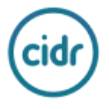
Computerised Infectious Disease Reporting (CIDR) is an information system developed to manage the surveillance and control of infectious diseases in Ireland.
CIDR is a shared national information system for the CIDR partners – the former health boards, the Health Protection Surveillance Centre, the Food Safety Authority of Ireland, the Food Safety Promotion Board and the Department of Health. Visit the CIDR website

HIQA has compiled a catalogue of all National Health and Social Care Data Collections in Ireland and has developed National Standards and Guidance that aim to improve the quality of national health information and data. This catalogue presents an overview of all the national health and social care data collections in Ireland in one accessible location and can be found as both a downloadable report and as an interactive online version on www.hiqa.ie.
Data available following relevant application process

The COVID-19 Data Research Hub has been maintained by the Central Statistics Office (CSO) since April 2020. It is a secure Hub containing pseudonymised, individual level data relating to COVID-19 cases, testing, individual information regarding those treated in hospital for the virus, and those that have been identified as being a close contact of a confirmed case. Visit the CSO Covid-19 Research Hub. The HRB website has information on the application process and forms.
Health Atlas Ireland is a HSE health intelligence platform that supports the quest for better health by exploiting the quality assurance/improvement, health/service mapping and research potential of available data. There are several data portals hosted on the Health Atlas Ireland platform that serve both community and hospital based health care workers. Included in these are the National Quality Assurance Intelligence Systems (NQAIS).
NQAIS Clinical is a well-known example within the NQAIS suite. NQAIS Clinical a key enabler for quality improvement initiatives in the delivery of safe patient care. It is an online interactive system that analyses hospitals’ own HIPE data with a view to providing detailed feedback to clinicians and to managers. Username and password is required for various applications. Please see the relevant contact details. Visit the Health Atlas Ireland website

The Irish Social Science Data Archive (ISSDA) is Ireland’s leading centre for quantitative data acquisition, preservation, and dissemination. It holds a range of key Irish and international comparative datasets, and makes them available for secondary analysis by students, academics, and researchers in the public and commercial sectors. The vast majority of key health and social care datasets require an application. View the process for accessing data through the Irish Social Science Data Archive. Further information of these key data, such as TILDA, Growing Up in Ireland and Healthy Ireland are provided below:
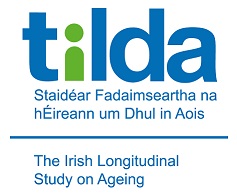
The Irish Longitudinal Study on Ageing (TILDA) collects information on all aspects of health, economic and social circumstances from adults aged 50 years and over resident in Ireland. Waves of data collection take place every two years. View the TILDA website
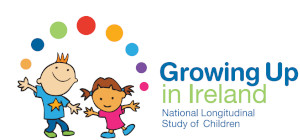
Growing up in Ireland (GUI): National Longitudinal Study of Children. Growing Up in Ireland is the national longitudinal study of children. It is the most significant survey of its kind ever to take place in this country and will help us to improve our understanding of children and their development. View the GUI website
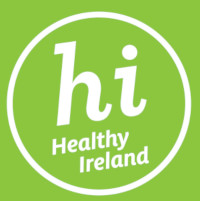
The Healthy Ireland Survey is an annual interviewer administered face-to-face survey conducted on behalf of the Department of Health by Ipsos MRBI. The first wave with 7,539 participants was carried out in 2014/2015. Its purpose is to provide current and credible data about the wide variety of factors that determine health and wellbeing in the population aged 15 years and older. View the Healthy Ireland Survey website

National Drug Treatment Reporting System provides information on alcohol and drug treatment for policy, service planning and research. The HRB provide infographics based on the latest available data, but raw data can also be requested by following the procedures outlined.View information on data request process.

National Drug-Related Deaths Index provides information on alcohol and drug-related deaths for policy, service planning and research. The HRB provide infographics based on the latest available data, but raw data can also be requested by following the procedures outlined. View information on data request process.

National Ability Supports System provides information on disability service use and need for policy,service planning and research. The HRB provide infographics based on the latest available data, but raw data can also be requested by following the procedures outlined. View information on data request process.

National Psychiatric In-patient Reporting System provides information on admissions and discharges for policy, service planning and research. The HRB provide infographics based on the latest available data, but raw data can also be requested by following the procedures outlined. View information on data request process.

HRB National Drugs Library The NDTRS is a health information system that collects anonymous data about people in drug and alcohol treatment from general practitioners, low threshold services. Through these interactive tables you can search for treatment data on eight different types of drug, including alcohol. The NDTRS interactive tables have been updated to include 2016 data. View details on the NDTRS interactive tables
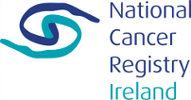
The National Cancer Registry is a publicly appointed body, established in 1991, to collect and classify information on all cancer cases which occur in Ireland. Datasets are produced routinely for annual incidence reports, specific research projects, for service planning and evaluation and other general enquires. View details on how to access data.
Comprehensive lists of additional data sources
Data.Gov is Ireland’s Open Data Portal – Data on Irish health, housing, population and more. Data.gov.ie is intended to provide easy access to datasets. Visit the Data.Gov website
Health Protection Surveillance Centre (HPSC) is part of the Health Service Executive and works in partnership with health service providers and sister organisations in Ireland and around the world, to provide the best possible information for the control and prevention of infectious diseases. Visit the HPSC webite
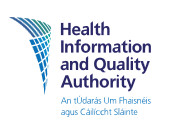
Health Information and Quality Authority – Catalogue of national health and social care data collections. Visit the HIQA website

AgeStats.ie is as a resource to support anyone undertaking research on ageing and older people in Ireland, North and South. If you are exploring specific themes or topics, it can point you to the sources with the data you need. View the AgeStats.ie website
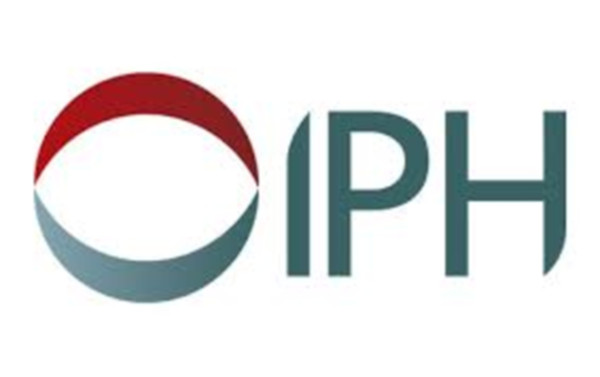
The Institute of Public Health in Ireland (IPH) provides evidence, advice and leadership to promote health and wellbeing and reduce health inequalities on the island of Ireland, North and South. The IPH Research and Information Team supports the development, implementation and evaluation and monitoring of public health actions that aim to improve health and wellbeing and reduce health inequalities across the island of Ireland. View the IPH website



